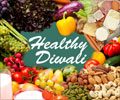Healthy foods were seldom available in low-income New Yorkers and this environment made it difficult for them to maintain healthy eating habits.

TOP INSIGHT
Food stamps and food pantries are critical resources for healthy food but even they are falling short when it comes to helping low-income New Yorkers maintain healthy eating habits.
"I spend all my money on food, all my social security. And I'm not buying really good, nutritious food the obstacle of having to work with food stamps, work with my rebate cash, sometimes I just need to put food in my mouth." - City Voices Focus Group Participant Seeking Change in Available Resources
The challenges of balancing food costs and availability aside, low-income residents revealed a strong interest in adopting healthier diets, but many also reported that even local food pantries were stocked with foods that made it harder to eat right.
"Many of these seniors can’t even afford to buy food, so they're going from one pantry to the other to try to get sufficient foods. But as we know, canned goods, a lot of canned goods, are not good for our community. There's a lot of salt in canned goods, and that's what you get largely through the food banks. You get a lot of canned goods because their shelf life." - City Voices Focus Group Participant.
The "Food and Nutrition: Hard Truths about Eating Healthy" focus groups and surveys include the voices of low-income adults from the Bronx, Brooklyn, Manhattan and Queens. The work is part of the Academy's ongoing effort to give low-income city residents an opportunity to express their needs and viewpoints about what is needed to make their communities healthier places to live.
One local organization that works hard to improve access to healthy foods in East Harlem is SCAN. The group was awarded $25,000 at the June 11, East Harlem Health in Action Summit, an project the Academy sponsored with several partners, to continue their work in East Harlem. SCAN runs the Get Healthy, East Harlem: Pop-Up Healthy Food Cafe events and intergenerational cooking labs.
Source-Newswise
 MEDINDIA
MEDINDIA




 Email
Email










